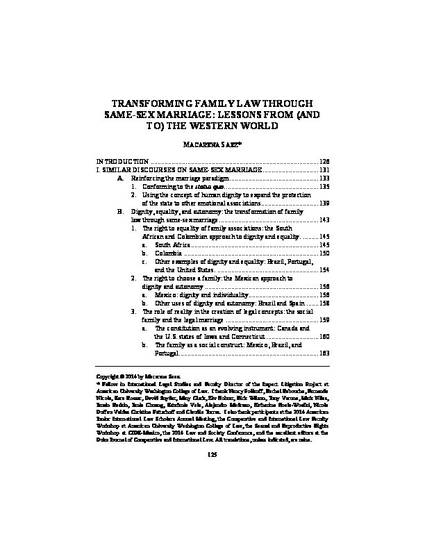
Duke Journal of Comparative and International Law
Same-sex marriage is a 21st century phenomenon. In less than 13 years more than 15 countries have amended their marriage laws to include same-sex couples. Some countries have made the change through political decisions but others have reached the change through adjudicative processes. A comparative analysis of decisions from the highest courts of countries or states granting marriage to same-sex couples demonstrates: 1. similar arguments are presented to these courts when making the case for and against same-sex marriage; 2. courts are using comparative law to justify their decisions on same-sex marriage; 3. the majority of courts in these countries have based their decisions to grant same-sex marriage on reasons of equality, autonomy and dignity; 4. relatively few courts have based their decisions on an idealist conception of marriage. Decisions on equality/autonomy/dignity have the potential to shift the family law paradigm from a marriage-centered model to one based on equality and autonomy where different types of families are valued. Decisions based on the value of marriage reinforce the marriage paradigm in family law, conforming to a system that marginalizes most families.
Available at: http://works.bepress.com/macarena_saez/35/
